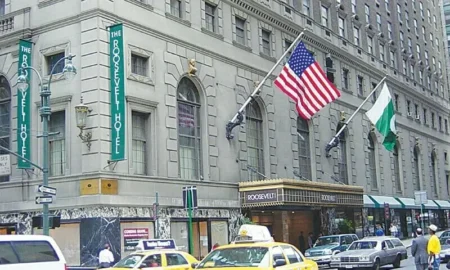BANGKOK: Thailand’s golden beaches are filling with tourists once again and Chinese Tourists are getting an especially VIP welcome under a new visa-free scheme.
The newly appointed Prime Minister Srettha Thavisin announced a visa-free policy for Chinese and Kazakh tourists that would run from September 25 to February 29 next year, signaling that the recovery of Thailand’s tourism industry is a top priority.
The policy came just in time for China’s “Golden Week” holiday period, which is centered around National Day on October 1.
This year’s Golden Week coincides with the Mid-Autumn Festival, marking a 10-day travel rush spanning September 29 to October 8. It’s also one of the first holiday periods since the Covid-19 pandemic during which people from China can travel without restrictions.
Chinese visitors arriving from Shanghai were greeted with gifts, handed out by Sretta and tourism ministers, at Bangkok’s Suvarnabhumi Airport as the visa-free policy took effect.
“We are confident that this scheme will boost the economy substantially,” Sretta told reporters.
“We would like to encourage more visits from Chinese tourists not only at major cities like Chiang Mai, Bangkok, Pattaya and Phuket.”
He noted that the Thai government hopes to see travelers visit smaller towns, to lengthen their stay and increase spending.
This week’s warm welcome was appreciated by Beijing, China’s Foreign Minister Wang Wenbin said in a press conference on Tuesday.
China was once the largest source of tourists to Thailand, with almost 11 million visitors heading to the Southeast Asia nation in 2019, accounting for more than a fourth of international arrivals before the Covid-19 pandemic plummeted the global tourist market.
Those numbers are a stark contrast to 2023. Only 2.2 million Chinese travelers arrived between January and September 10 this year, according to data from the Tourism Authority of Thailand.
Southeast Asian countries had set high hopes for a rebound of international travel to boost their tourism sectors following the pandemic shutdowns, their positive forecasts bolstered by China’s easing of travel restrictions in early 2023.
But with a sluggish Chinese economy, a weaker yuan and grim unemployment figures, regional travel hubs had to pare down their expectations and brace for a longer road to recovery.
Gary Bowerman, founder of Check-in Asia, a tourism-focused research and marketing company, said the new visa-exemption strategy sets the tone not just for the Golden Week peak seasons but also upcoming Christmas and Lunar New Year holiday periods.
“Competition is really intensifying in the region to attract Chinese tourists amongst all countries, and you have to make it as easy as possible,” said Bowerman.
He added that the Chinese outbound travel industry is going through a “transitory period,” as travel trends and sentiments have changed since the pandemic, while more Chinese consumers are also looking for different experiences – often on smaller budgets.




